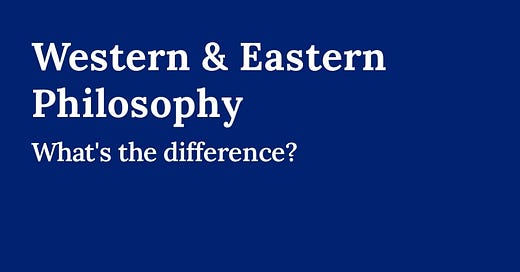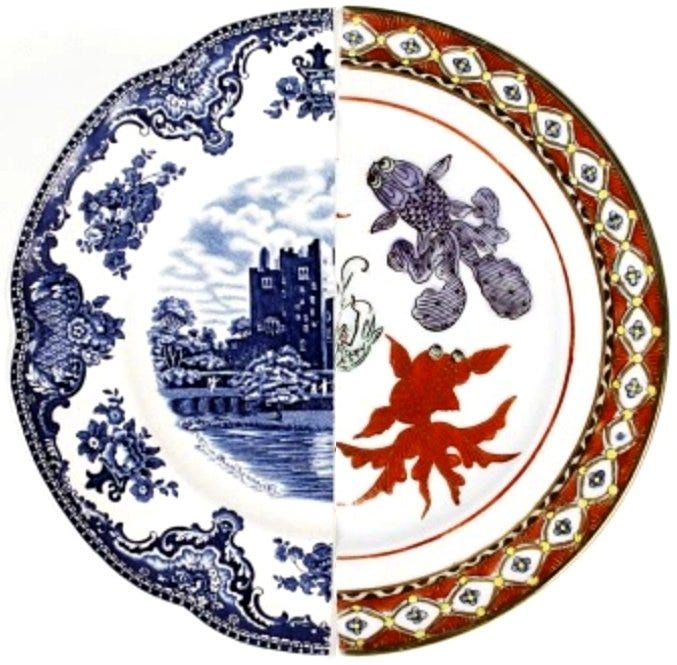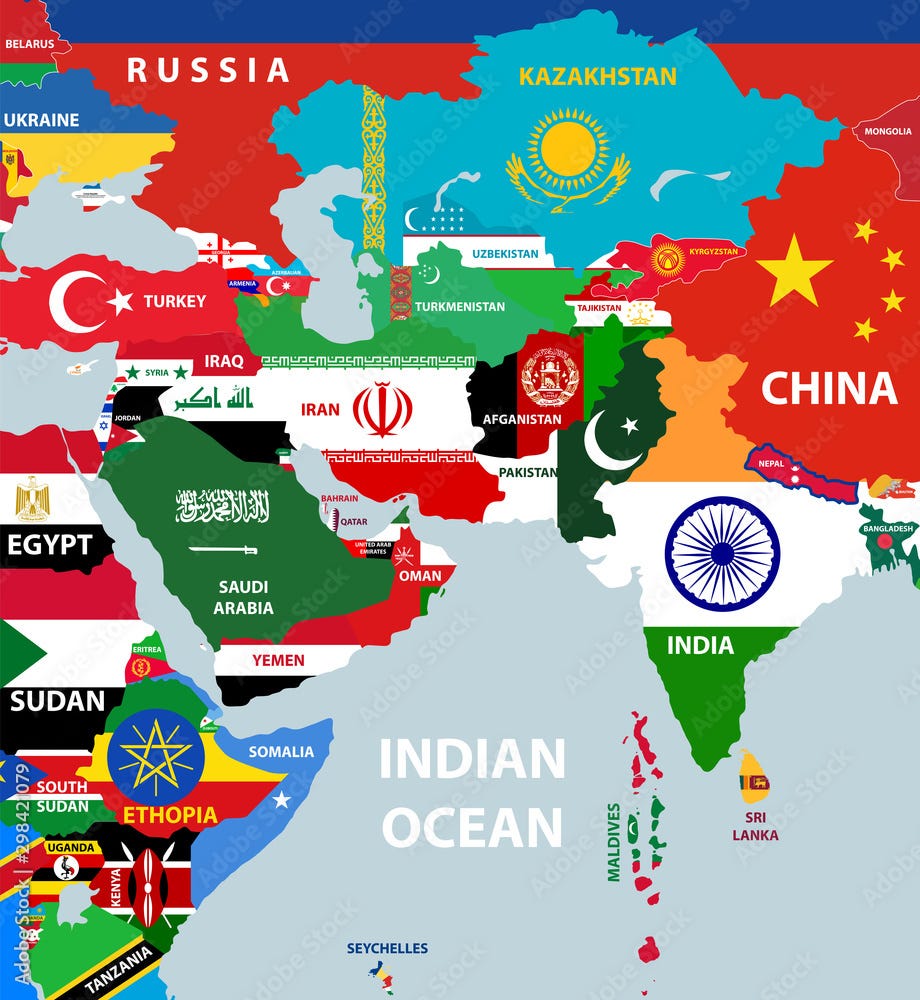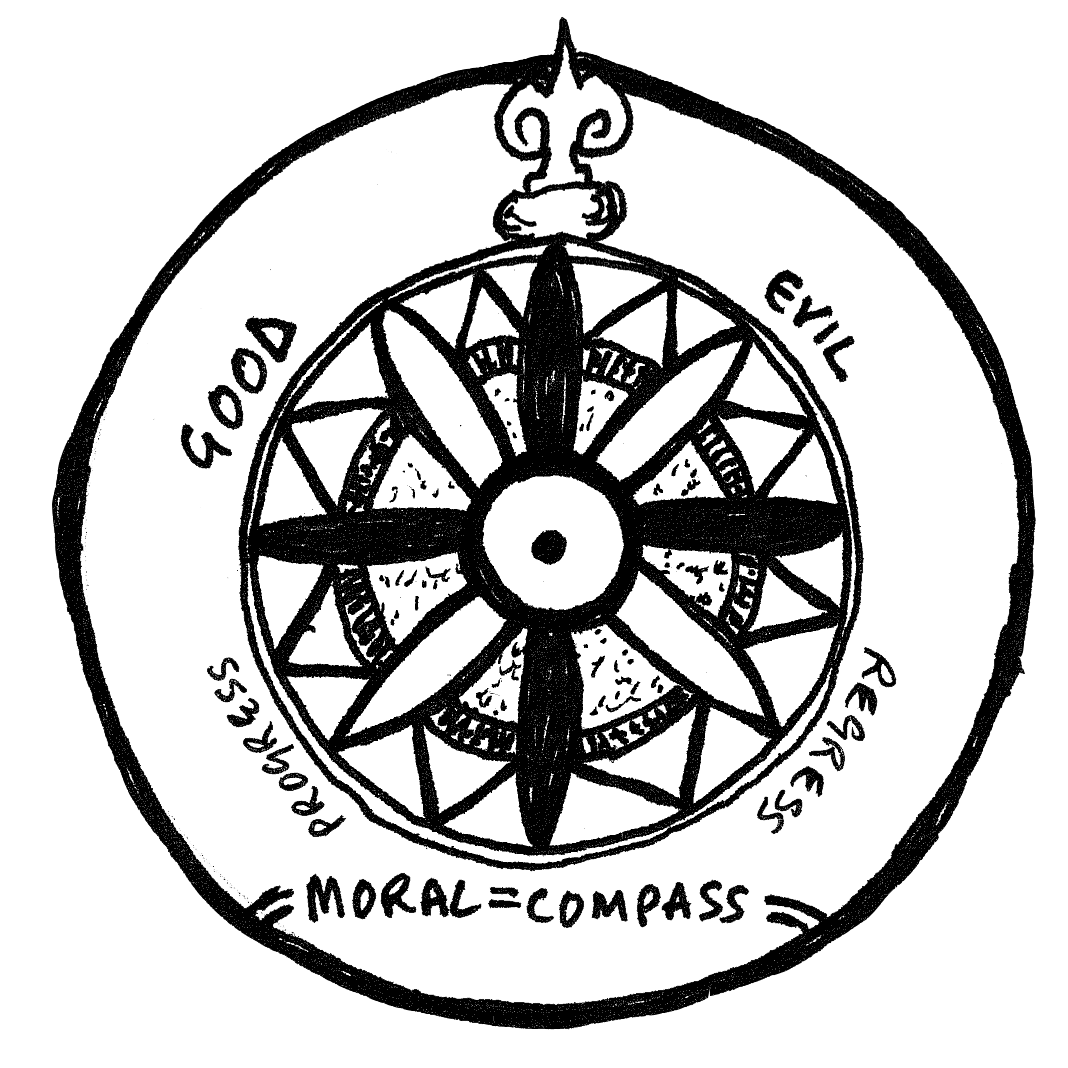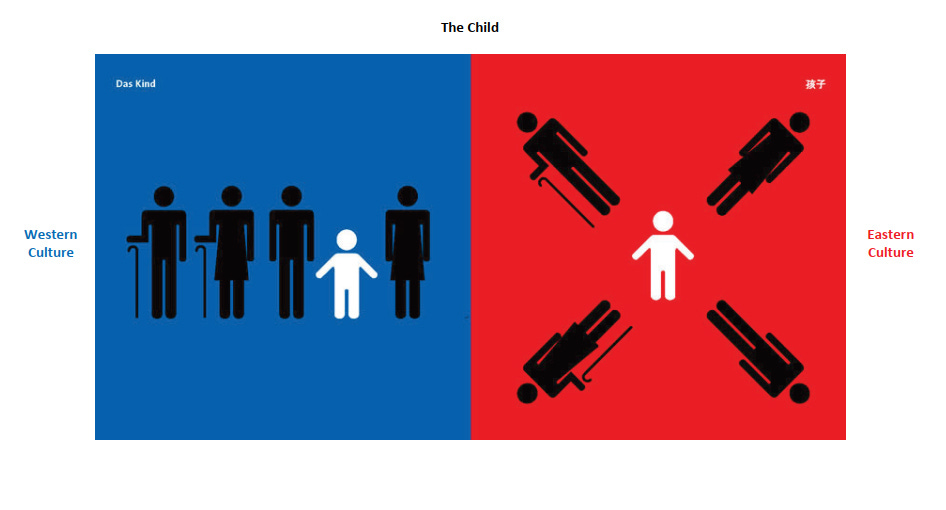In the complex landscape of global marketing, understanding the distinct ethical frameworks of Western and Eastern cultures can significantly enhance a brand's strategy and data interpretation. This exploration delves into three key differences in these ethical systems, artfully weaving them into the fabric of contemporary brand strategies, and showcasing how they paint a richer, more engaging picture for marketers and consumers alike.
The philosophical divide between Western and Eastern ideas traces its origins back to ancient times, with notable distinctions emerging during the periods of classical Greek philosophy and the early philosophical traditions of India and China.
Western
Western philosophy began in ancient Greece, where thinkers like Socrates, Plato, and Aristotle laid foundational principles centered on reason, empirical evidence, and logical deduction.
These ideas gradually evolved through various European intellectual movements, deeply influencing Western ethical, political, and scientific thought.
Eastern
Eastern philosophy, which includes Indian, Chinese, and Japanese traditions, often emphasizes intuitive understanding, spiritual introspection, and a holistic view of the universe. This perspective is deeply integrated with religious and spiritual practices, such as those seen in Buddhism, Taoism, and Hinduism, which stress personal enlightenment and the interconnectedness of all life.
Now let’s explore the differences between the two:
1. The Individual versus the Collective
Western ethics often emphasize individualism, focusing on personal rights and autonomy. This perspective encourages brands to cater to personal expression and self-improvement. In contrast, Eastern ethics prioritize collectivism, where the welfare of the group or community holds precedence. For instance, advertising campaigns in Asia might highlight how a product benefits a family or community, rather than just the individual consumer.
Understanding these differences is crucial when entering new markets. A brand might focus on personal achievement and freedom in the U.S., while in Japan, the same brand could emphasize harmony and community alignment. This dual approach not only respects cultural norms but also broadens the brand’s appeal.
Western Focus on Individualism:
Nike: Nike’s marketing campaigns often emphasize personal empowerment, individual success, and self-expression. Campaigns like "Just Do It" are quintessentially Western, focusing on personal achievement and the triumph of the individual.
Apple: Apple’s marketing also centers on individualism, promoting how its products can enhance personal creativity and efficiency. Their tagline, "Think Different," celebrates individuality and personal innovation.
Eastern Focus on Collectivism:
Samsung: In contrast, Samsung in South Korea often highlights how its products contribute to the well-being of the family or enhance group connectivity, aligning with Eastern values of collectivism.
Toyota: Toyota’s marketing in Japan often focuses on the vehicle’s reliability for family safety and its contribution to societal harmony, emphasizing how the brand fits into the broader community and family life.
2. The Role of Duty and Harmony
Duty is a significant aspect of Eastern ethics, often derived from philosophical and religious traditions like Confucianism, which emphasizes roles and responsibilities within societal structures. Harmony, too, is highly valued, with decisions often made to maintain social and familial cohesion. Western ethics, while not devoid of similar concepts, often put a greater emphasis on the rights of the individual and justice as a means to resolve conflicts.
Western Emphasis on Rights and Justice:
Starbucks: In Western markets, Starbucks promotes its ethical sourcing and corporate social responsibility initiatives, emphasizing justice and ethical duty, which resonates with Western consumers’ focus on moral righteousness. We’ve seen how this can backfire.
Patagonia: Known for its activism, Patagonia’s focus in Western markets is on environmental justice, protecting public lands, and ensuring fair labor practices, aligning with the Western ethical focus on rights and justice.
Eastern Emphasis on Duty and Harmony:
Huawei: Huawei’s marketing in China often emphasizes its role in advancing national technological progress and supporting collective economic prosperity, showcasing its alignment with national goals and harmony.
Uniqlo: In Japan, Uniqlo often markets its products as harmoniously integrating into everyday life, emphasizing comfort and social conformity, and promoting a sense of community and collective identity.
For brands in Eastern markets, messaging that aligns with fulfilling familial duties or contributing to societal harmony can be more effective. In Western markets, strategies that focus on justice, fairness, and individual rights might be more appealing.
For example, a healthcare brand in China might focus on how their products help take care of elderly parents, adhering to the filial piety concept, whereas in the U.S., the same brand might emphasize the right to personal health and independence.
3. Interpretation of Moral Absolutism versus Moral Relativism
Western ethics are more likely to be viewed through a lens of moral absolutism, which suggests that certain ethical truths hold universally for everyone. Eastern ethics can embody more relativistic perspectives, suggesting that what is moral may depend on specific circumstances and relationships.
A Western approach might assert a one-size-fits-all solution to ethical dilemmas, promoting a universal value proposition. Conversely, an Eastern approach might tailor campaigns more specifically to local norms and customs, recognizing that context influences consumer behavior.
Western Moral Absolutism:
The Body Shop: Known for its unequivocal stance against animal testing, The Body Shop’s marketing campaigns in the West often reflect a moral absolutism, advocating for universal rights and ethical standards that do not vary by location. Goodbye, The Body, we’ll miss you.
Ben & Jerry’s: This brand is renowned for its strong stances on issues like marriage equality and climate change, reflecting a Western, absolutist approach to ethics where certain principles are seen as universally valid.
Eastern Moral Relativism:
Alibaba: Alibaba’s approach in the Chinese market adapts to the nuances of local consumer behaviors and the complexities of the Chinese market, reflecting a more relativistic approach to business ethics, where strategies are tailored to fit the local context.
Tata Group: In India, Tata Group tailors its initiatives and business practices to align closely with local customs, traditions, and social norms, reflecting a relativistic approach that adjusts moral and ethical practices to fit the local context.
The nuances of Western and Eastern ethics provide a rich tapestry for brand strategists to navigate. By understanding and integrating these ethical differences, brands can craft strategies that are not only effective but also culturally sensitive and respectful. This approach not only enhances a brand’s global image but also ensures that their marketing practices contribute positively to the diverse markets they serve.


